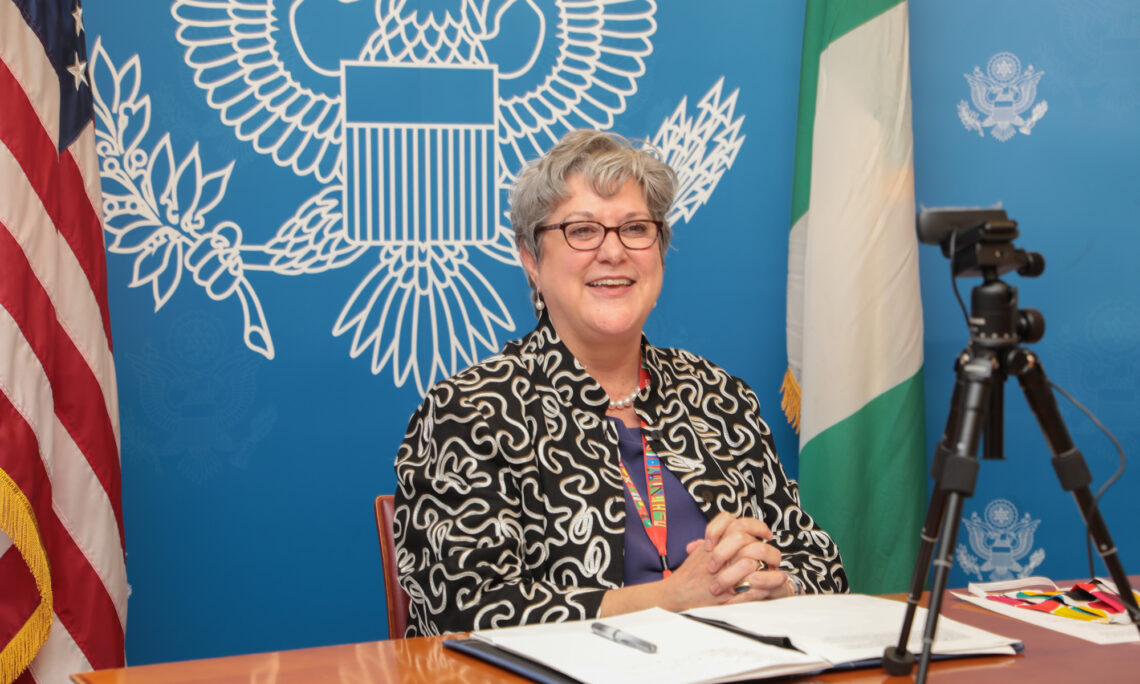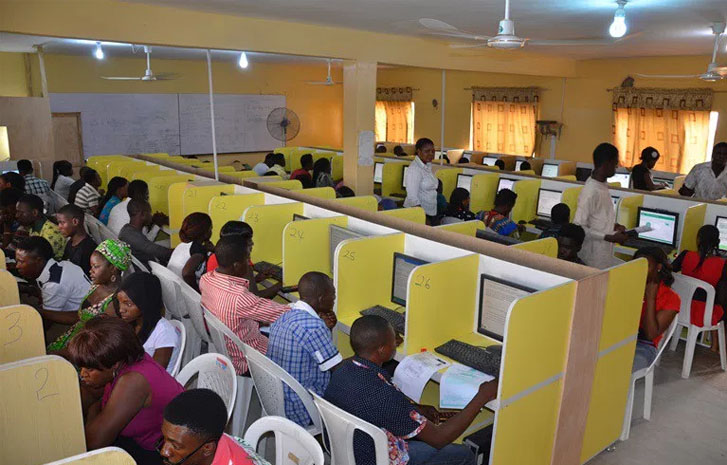The U.S. Ambassador to Nigeria, Mary Beth Leonard, says her country has facilitated 28 million dollars scholarships for Nigerian students to study in U.S institutions in the last one year.
Leonard said this on Thursday at the commemoration of the Student Visa Day organised by the U.S Mission in Abuja.
She said that the scholarship process was facilitated by the Education U.S.A programme of the embassy which was keen on enabling Nigerian students to pursue their academics and a future in the U.S.
“We are proud to prioritize Nigeria’s scholars in our consular process, as we recognise the value their success holds for the country’s future. With over 13,700 students fulfilling their American education dreams, the United States welcomes more Nigerian students enrolled than ever before. Americans view university study as an investment in a professional future.
“And I’m pleased that our Education USA team has helped Nigerian students apply for and receive more than 28 million dollars in scholarships and other educational funding to pursue their future. We know from us over 8,000 education and exchange programme alumni in Nigeria, the tremendous community impact that results when these ambitious students return to apply their knowledge and skills.
“Here at the U.S. Embassy, we are proud of the diversity in American educational institutions. There are more than 8,000 Students and Exchange Visitor Programme-certified educational institutions in the United States,” Leonard said.
The envoy also noted that beyond studying in the U.S, the programme provides the opportunity for Nigerian students to meet with U.S citizens and other nationals which will help in strengthening bilateral ties.
She said that with more than one million students from 220 countries and territories, the United States hosts more international students than any other country in the world.
She revealed that Nigeria sent more students to the United States than any other country in Africa.
“Students at our universities exchange ideas not only with American students but with students from across the globe. The educational enrichment that these types of discussions provide is priceless.
“As students, you will hear ideas and personal stories from your classmates and professors that will challenge your views. And also expand your understanding of the world; your ideas and stories will do the same for those around you.,” she said.
According to her, by studying together in the same schools, Nigerians, Americans, and students from all other nationalities will not only understand each other better but also see how many common challenges we all face.
“Students can work together to creatively solve problems and build long-term professional collaborations, increasing our countries’ economic ties”, Leonard added.
She, therefore, congratulated the beneficiaries, who were present as she urged them to stay focused on their studies in other to make a meaningful impact in the country when they return.
Ms Malate Atajiri, an Education USA Adviser said the opportunities fund programme seeks to identify and support high achieving low-income students who otherwise will not have been able to navigate or finance the process.
Atajiri said that the programme helps to support aspiring students towards securing full scholarships from top colleges in the U.S.
“The programme finances the process right from the testing stage, their application fees and even paying for their flight tickets after they have secured the funding. This year, the opportunity funds programme in Abuja supported 50 students to secure 4 million dollars in scholarships at some of the most competitive colleges and institutions in North America.
“Since the programme started, we have placed over 320 students with full funding in the U.S the programme also has a strong ethos of giving back. Although we have many students who have done and continue to do great things, Education USA is committed to helping young Nigerians who are interested in studying in the U.S.
“We help students to navigate that process and help them realize their dreams of a U.S education,” Atajiri said.
Atajiri added that the Education USA had six centers in Nigeria; Abuja, Lagos, Jos, Calabar and Ibadan where aspiring students could visit to learn more and get more information on the programmes and processes. (NAN)

 Naira4 weeks ago
Naira4 weeks ago
 Naira4 weeks ago
Naira4 weeks ago
 Travel4 weeks ago
Travel4 weeks ago
 Naira3 weeks ago
Naira3 weeks ago
 Jobs4 weeks ago
Jobs4 weeks ago
 Naira4 weeks ago
Naira4 weeks ago
 Investment4 weeks ago
Investment4 weeks ago
 Travel4 weeks ago
Travel4 weeks ago
















